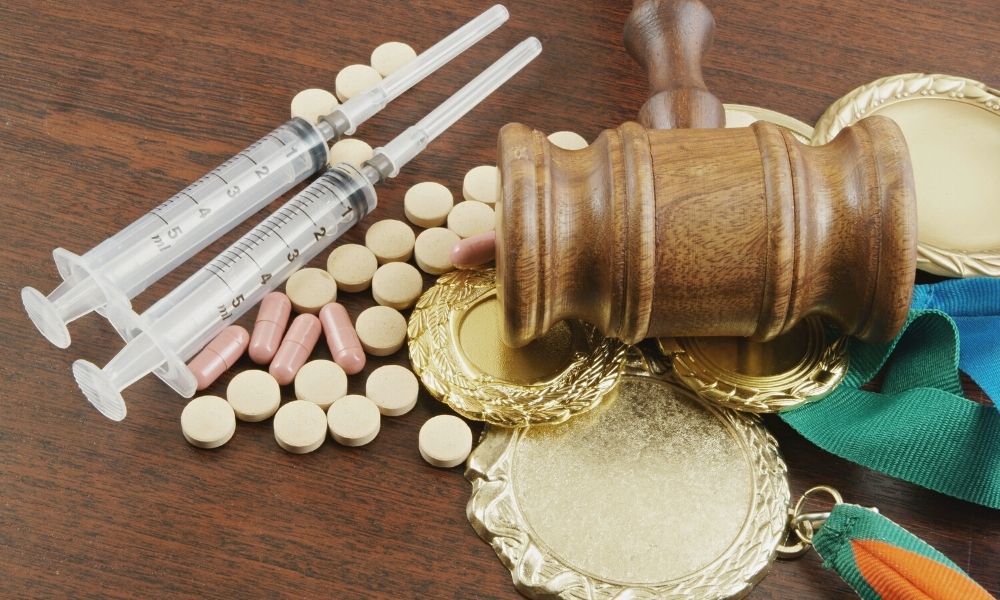
Doping and Safeguarding: What Happened in Beijing?
Every two years, people around the world tune into the Olympic Games to witness greatness in sport, to cheer for the athletes that represent their country, and to be a part of what is promoted as the pinnacle of global sport competition. From the opening ceremonies to the celebratory closing ceremonies, from the thrill of victories to the agonizing losses, it is hard not to become emotionally involved in this mega sports event. In recent years, however, it seems scandal, abuse, and bribery seem to take center stage during the Games. Unfortunately, Beijing was no exception, this time with women’s figure skating taking center stage.
What We Know
15-year-old Russian figure skater Kamila Valieva became the focus of the Games when it was announced she has tested positive for a banned substance. What happened? Let’s start with what we know:
- 7 February: Team Russia wins gold in the team figure skating event, in which Valieva competed.
- 8 February: The World Anti-Doping Agency (“WADA”) announced that a drug sample obtained from Valieva tested positive for trimetazidine, a banned substance. The team figure skating medal ceremonies are postponed as a result. The urine sample had been taken from Valieva during the Russian Figure Skating Championships in Saint Petersburg, Russia on the 25 December 2021.
- 9 February: Russian Anti-Doping Agency (“RUSADA”) announced they suspended Valieva from competing. Valieva challenged the suspension and the organization’s Disciplinary Anti-Doping Committee overturned the suspension, thereby allowing Valieva to compete. The International Olympic Committee (“IOC”), WADA, and the International Skating Union (“ISU”) all file a complaint, which lead to a Court of Arbitration of Sport (“CAS”) hearing.
- 14 February: CAS releases their decision, allowing Valieva to continue to compete.
- 15 February: Valieva competes in the women’s short program, winning the top score. That same day, it was revealed she tested positive for two other heart medications.
- 17 February: Valieva falls numerous times during the long program, ultimately finishing out of the top three. Had Valieva finished in the top three, no medal ceremony would have taken place due to the doping scandal. The medal ceremony was held for the gold, silver, and bronze medalists.
What is Trimetazidine? And Why Did CAS Allow Her to Compete?
Trimetazidine is a drug used to increase blood flow to the heart by metabolizing fatty acids, which then helps your body use oxygen. It is primarily used by patients who have heart related conditions, such as angina, which restricts blood flow to the heart. The benefit to athletes, it is argued, is that by helping your body better utilize oxygen, it increases endurance, thereby ultimately improving performance. Therefore, it has been banned by WADA for use in competition since 2014 and banned for use outside of competition since 2015. And what about the other two substances, hypoxen and L-Carnatine? These two substances are not banned; however, it is believed that this trifecta of substances could increase endurance, reduce fatigue, and promote oxygen flow.
This is not the first time the substance has been found in athletes. In 2014, then 23-year-old Chinese swimmer Sun Yang tested positive for trimetazidine and was suspended for three months. Then in 2018, then 31-year-old Russian bobsledder Nadezhda Sergeeva tested positive for the substance during the Olympic Games and was disqualified and banned for eight months as a result. If other athletes have been suspended after testing positive for the substance, why was Valieva allowed to compete? CAS made the following four points in their decision to allow her to compete:
- She is a “protected person” under WADA Code. “Protected persons” applies to elite athletes under the age of 16. Under this rule, she does not need to disclose how the drugs entered her system, minimum sanctions can be used if she is not at fault, and public disclosure is not mandatory.
- That RUSADA and the WADA Code do not address provisional suspensions imposed on protected persons.
- That preventing her from competing would cause irreparable harm to her.
- The untimely notification of her results. She was tested in December 2021 and not made aware of results until February 2022, which was not her fault of the late notification.
Safeguarding
Safeguarding is an issue in a doping case? Yes. The key concerns taken from this case include:
- Should she have even been allowed to compete due to the positive drug test? How does a 15-year-old obtain these substances?
- Was she under too much mental stress to compete?
Let’s also take a closer look at events after the women’s final skate. Coming off her skate, it is reported that Valieva’s coach asked her “Why did you stop fighting? Explain it to me – why?” Many around the world, including IOC President Thomas Bach, found this behavior disturbing, wondering why the reaction by her coaches was so cold. Instead, the belief is that her coaches should have been more comforting, especially taking into consideration the mental stress Valieva was under due to the media attention around her. On the flip side, many believe the coach’s reaction was a non-issue. After the Olympics, Valieva herself came out to publicly defend her coach and stated she feels very supported. So which side is right? It depends upon your values and your beliefs.
While women’s figure skating was the center of attention this time, this is not an isolated incident. Doping and safeguarding are complex issues that have touched all sports across all countries. Safeguarding and doping are both addressed top-down through policy and bottom-up through education; however, these Games proved there are still flaws that need to be addressed.
Questions to Consider for the Future
Unfortunately, this highly publicized incident could be the legacy of the Beijing Games. It happened at the end of the Games and was heavily covered by the media. Like most heavily covered media stories, it has dissipated as quickly as it built up. Yet, there is so much we do not know. How did the drugs enter her system? Did her coaches, or others in her entourage, know? Or perhaps even encourage her to take them? Why did it take so long for the sample to be tested? What this incident has done is point out flaws in policies that need to be addressed:
- Should a 15-year-old, or younger, still be a “protected person”?
- Is it fair they are held to different standards when competing on the same stage?
- What happens in the event a “protected person” has a provisional suspension imposed on them in the future?
- And a question already being discussed by IOC Executive Board, should there be an age minimum imposed for the Olympic Games across all events?
As previously mentioned, no policy can address every possible situation; however, we do need to learn from this incident and reassess policies and other measures that can help prevent this and other similar occurrences in the future. We also need to take a closer look at safeguarding and consider what can be done to ensure athletes physical and mental health is protected.
The Games have ended, but we should continue to push to get answers to these questions to help not only protect athletes and to prevent similar incidents like this from happening in the future, but also the integrity of the Olympic Games themselves. The corruption, bribery and abuse that has been reported during and after the Games of recent years has left a bitter taste with fans, and this is evident through the decrease in popularity of the Games. The Beijing Games averaged 12 million viewers per day on NBC, which is roughly half the number of viewers of the 2018 PyeongChang Games. Is this decrease all due to the negative press stories? No, but it is a contributing factor.
Sport should be kept clean and athletes, no matter what their age, should be able to compete in an environment where they feel safe, protected, and supported. Athletes, as well as all those involved, should also understand the ramifications of their actions if they do not follow the rules and be held accountable for any bribery, abuse, or corruption. It is imperative for all parties to keep the integrity of sport alive.
Related article: Court of Arbitration for Sport Ruling on Kamila Valieva – The New York Times

Christy Ann Dukehart | Alumni 21′
Christy is a sports director and entrepreneur with over 6 years of experience in developing and training athletes, with an additional 10 years in international business leadership roles.
Winner of the Best Research Paper 2021





